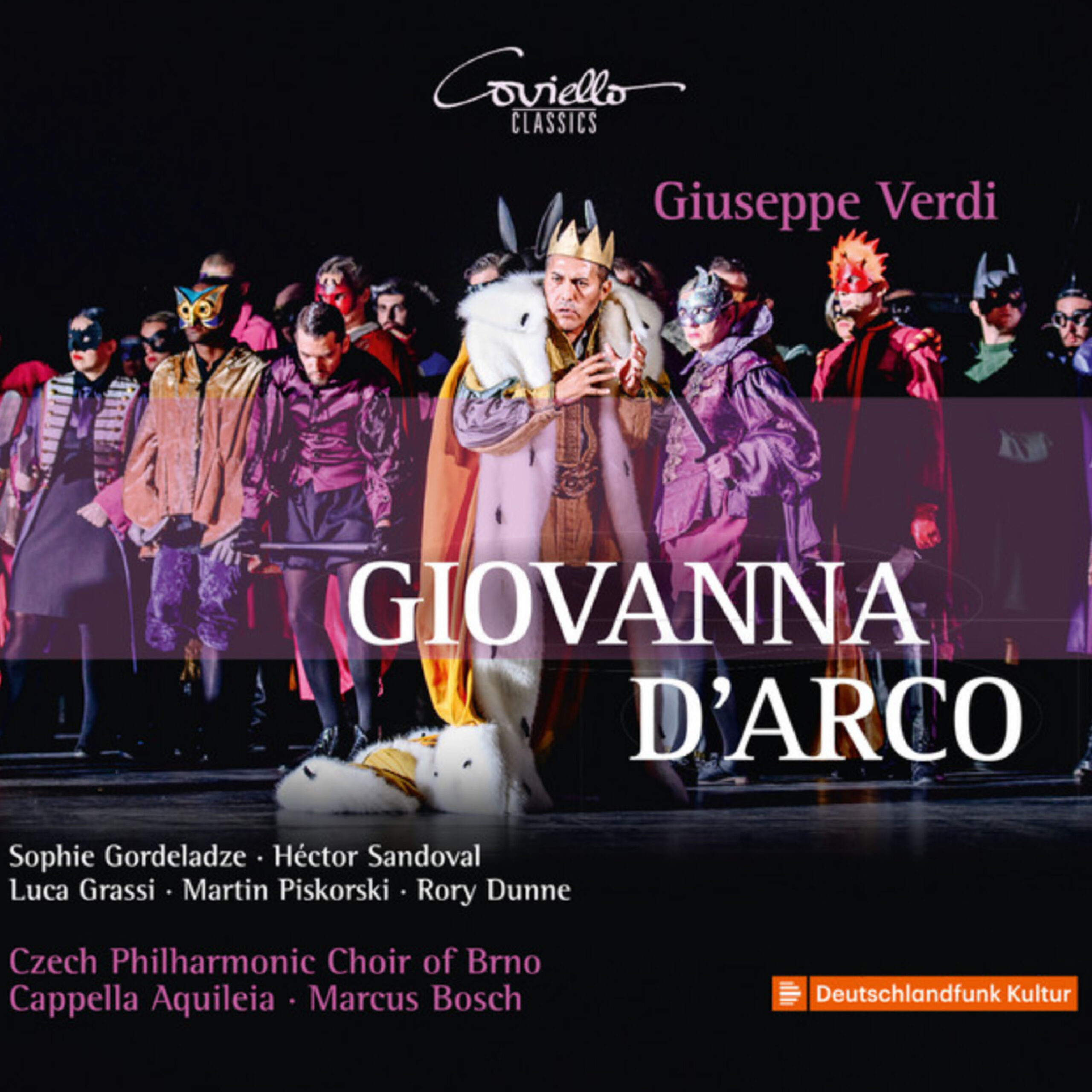
Opera Lounge’s review of Marcus Bosch Cd “Verdi: Giovanna D’Arco (Live)”
“The Baden town of Heidenheim has just under 50,000 inhabitants, a football team in the Bundesliga, and an opera festival that bears its name. Since conductor Marcus Bosch and his orchestra, Cappella Aquileia, have been in charge, the festival has developed into a stronghold of Verdi cultivation, consistently performing the early works of the Italian composer in recent years. In the 2023 season, it even staged Giovanna d’Arco in the Congress Centrum alongside Don Carlo in the Knight’s Hall of the castle ruins.
For several decades, summer festivals were relatively safe from the excesses of director’s theater (Regietheater), with only sporadic instances like a pot-smoking Mimi in Macerata or Maria Devia as Violetta in a miniskirt in the Arena di Verona. However, with the production of Der Freischütz in Bregenz, it has become clear that its triumphant advance into even the furthest corners of the opera experience is likely inevitable.
When a director cannot engage with a plot, no matter how firmly tied to a specific time and place it may be, they often present it as a dream—or better yet, as a hallucination. Here, the hallucination of Joan of Arc is depicted by director Ulrich Proschka as taking place in a psychiatric clinic, where she is subjected to various medical procedures intended to cure her delusion of receiving a divine mission to defend France against the English. The English themselves are portrayed as the medical staff and heavenly voices, with Talbot as the chief physician. The choir takes on the role of numerous head doctors, ward doctors, and assistant doctors, joined by nurses in strict uniforms with caps and aprons. How often one has seen this personnel trope on opera stages in recent years!
The hospital room, including a bedpan, is naturalistically designed and surrounded by stakes. Outside of this room, a court society, likely existing only in Giovanna’s imagination and doubling as villagers, wreaks havoc—partly in imaginative and partly in grotesque costumes, some disfigured with monstrous glasses (stage and costumes by Lena Scheerer). As in Schiller's play (Short is the pain, and eternal is the joy), from which Verdi also adopted the historically inaccurate battlefield ending, the conclusion offers a reconciliatory transfiguration—but only in the singing, while Giovanna’s tightly bound corpse already lies on the hospital bed.
Musically, it is a pure joy: the Czech Philharmonic Choir of Brno (Petr Fiala) and the Cappella Aquileia under Marcus Bosch embody the spirit, drive, and constant sense of spontaneity required for the young Verdi. The vocal soloists are equipped with small microphones, which are, of course, clearly visible on screen. Sophie Gordeladze is a visually striking Giovanna with a red mane. Her soprano is light, bright, mostly secure in the upper register, and more fitting for a Gilda or Violetta. She shines in "Ah, son guerriera," for which she possesses the necessary agility, but in the extreme high notes, she occasionally becomes piercing. In the lower register, one wishes for more substance. Héctor Sandoval's tenor as Carlo has little brilliance, sounding dry and occasionally muffled, with noticeable difficulties in the passaggio. Luca Grassi's Giacomo demonstrates an understanding of the prerequisites for Verdi singing, excelling more in the powerful, condemning tones than the compassionate ones. Martin Piskorski is commanding in the short role of Delil, while Rory Dunne delivers a somber Talbot.
The audience is enthusiastic and generous with applause between scenes, but the production team does not face the auditorium’s judgment (Coviello COV92419).”
By Ingrid Wanja
